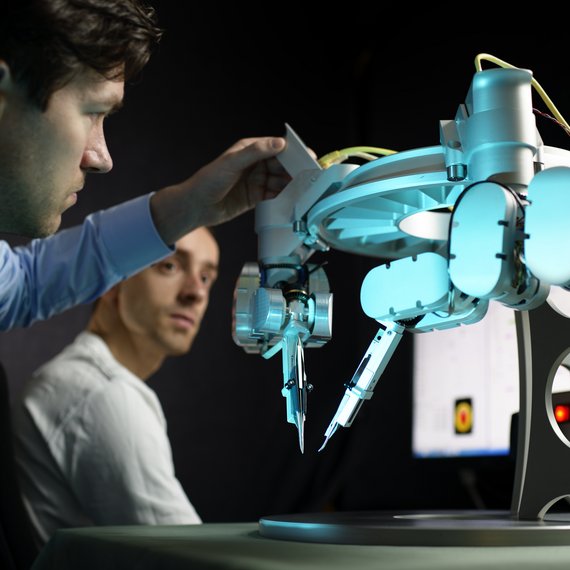Date
Thursday January 24, 2019 from 10:00 AM to 6:00 PMLocation
Auditorium, TU/e campusOrganizer
High Tech Systems Center*registration is closed*
Robotics is a rapidly growing field of research and development that is increasingly impacting our day-to-day lives and the way we do business with the creation of new products and services.
This trend is also visible in the sheer number and diversity of research groups, projects and activities that are pursued at Eindhoven University of Technology. Our research varies from the creation of highly autonomous vehicles (AGV’s, cars) to medical devices that enhance the surgeons capabilities and to social robots that are able to teach children with autism to recognize different kinds of human emotions.
As robots enter the human domain, developing a robotic system not only involves mechanics, electronics and computer sciences, but also introduces social interaction aspects and poses many ethical questions. Creating robotics systems, is a multi-disciplinary exercise by nature. The TU/e High Tech Systems Center plays a pivotal role in connecting and creating joint industry-university driven robotics research projects to create tomorrow’s technologies.
TU/e High Tech Systems Center welcomes you to the 2nd edition of the Robotics Technology Symposium that will be held on 24th of January 2019 (10 AM - 6 PM) in the Auditorium (Entrance 6 & 12) at the TU/e Campus. This event is dedicated to sharing our latest results in research, innovations and upcoming initiatives aimed to stimulate connections between industry representatives and university researchers.
Keynotes
Program
10.00 – 10.30 | Registration/ Tech Square |
10.30 – 11.00 | Keynote 1 – Lazy Robotics |
11.00 – 11.25 | Perceived Human – Likeness in Robotics |
11.25 – 11.55 | Robotics Pitches from TU/e researchers |
11.55 – 13.00 | Lunch/ Tech Square |
13.00 – 13.45 | Keynote 2 – An overview of Research and Robotics at Google DeepMind |
13.45 – 14.10 | Robotics & AI – assisting surgeons with the impossible |
14.10 – 15.00 | Break / Tech Square |
15.00 – 15.30 | Enabling cloud robotics applications with 5G/Photonics |
15.30 – 16.00 | Robotics Pitches from TU/e researchers |
16.00 - 16.30 | Keynote 3 - Robotisation as rationalisation: The Problem of Dehumanisation |
| 16:30 - 18:00 | Network drinks/ Tech Square |
